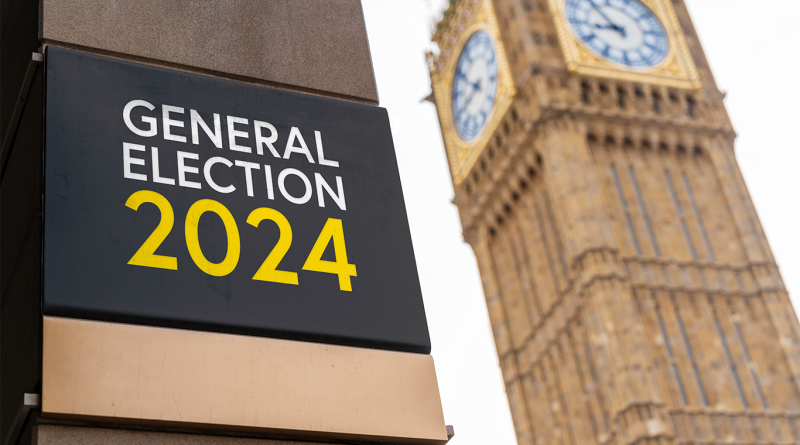Labour’s Move to Scrap Infrastructure Projects
The Labour Party’s victory in the 2024 general election has marked a transformative period in UK infrastructure policy. Under the leadership of Prime Minister Sir Keir Starmer, the new administration is undertaking a comprehensive reassessment of existing infrastructure projects, including major road and hospital developments. This pivot is not merely a budgetary adjustment but a strategic reallocation of resources aimed at fostering a more sustainable and resilient economy.
The immediate post-election announcements have already stirred public debate, with the government indicating a potential halt to several large-scale projects that do not align with its environmental objectives. Specifically, the government is scrutinizing projects that contribute significantly to carbon emissions, with the intention of redirecting funds towards initiatives that support renewable energy and sustainable development. This strategic shift is part of Labour’s broader commitment to reshaping the UK’s infrastructure landscape in favor of long-term environmental and economic goals.
Labour’s Vision for Transforming the UK into a Clean Energy Superpower
At the heart of Labour’s new infrastructure strategy is a bold vision to establish the UK as a leader in clean energy. Central to this plan is the creation of Great British Energy, a state-owned entity dedicated to accelerating investments in renewable energy sources. This initiative is a critical component of Labour’s pledge to achieve net-zero carbon emissions by 2030, a goal that necessitates significant expansions in solar, wind, and other renewable energy capacities.
Great British Energy is expected to spearhead the development of a robust infrastructure to support the country’s transition to a clean energy economy. This includes doubling the capacity of onshore wind, tripling solar power installations, and quadrupling offshore wind projects. Such a shift not only aims to reduce the nation’s carbon footprint but also seeks to position the UK as a global leader in green technologies.
In addition to energy generation, Labour’s manifesto places a strong emphasis on enhancing energy efficiency across the country. The Warm Homes Plan is a cornerstone of this effort, promising substantial investments in home improvements such as insulation, solar panels, and low-carbon heating solutions. The initiative is designed to upgrade five million homes, ensuring they meet higher energy efficiency standards by 2030. This comprehensive approach to energy efficiency is expected to reduce overall energy consumption and lower costs for consumers.
Labour’s transport strategy represents another significant departure from past policies, particularly with its plans to nationalize rail services. The formation of Great British Rail (GBR) will bring the railways under public ownership, centralizing control over service quality, investment, and operations. This move is aimed at enhancing the efficiency and reliability of the UK’s rail network, with a specific focus on increasing the use of rail freight to reduce the environmental impact of transport.
The government’s transport strategy also includes a strong push towards the adoption of electric vehicles (EVs). By reinstating the 2030 deadline for phasing out new petrol and diesel cars, Labour is accelerating the transition to EVs. This policy is accompanied by plans to expand the country’s EV charging infrastructure and provide incentives for EV purchases, further encouraging the shift towards greener transportation options.
Moreover, the Labour government is keen on decentralizing transport and infrastructure planning through enhanced devolution. This initiative will empower local authorities with greater control over regional transport systems, housing, and planning. By doing so, the government aims to tailor infrastructure projects to meet local needs more effectively, improving public services and fostering economic development at the regional level.
Economic Implications of Labour’s Infrastructure Realignment and Public Response
The Labour Party’s infrastructure realignment has significant economic implications, both in terms of public investment and job creation. By cancelling or scaling back traditional infrastructure projects, such as major road expansions and new hospital constructions, the government is freeing up resources to invest in emerging sectors like renewable energy and green technology. This reallocation is not just a fiscal strategy but a deliberate effort to build a more resilient economy that can better withstand global market fluctuations.
Labour’s approach also reflects a broader economic philosophy that prioritizes sustainable growth and social equity. The government’s emphasis on clean energy and public transport investments is seen as a way to stimulate new job opportunities, particularly in the green economy. However, this transition has raised concerns among stakeholders in the construction and fossil fuel industries, who fear job losses and economic dislocation. The Labour administration has sought to mitigate these concerns by emphasizing the potential for job creation in new sectors and the long-term economic benefits of a sustainable infrastructure strategy.
The public response to these proposed changes has been mixed. While there is general support for environmental initiatives and a cleaner, more efficient transport system, there are also anxieties about the immediate economic impacts, particularly in regions dependent on traditional infrastructure projects. Labour’s focus on devolution and local empowerment is partly an effort to address these concerns by ensuring that regional needs and priorities are adequately reflected in national infrastructure planning.
The Labour Party’s new infrastructure policies mark a significant shift towards a more sustainable and future-oriented approach to public investment. By prioritizing clean energy, enhancing public transport, and empowering local authorities, the government aims to create a more resilient and equitable economy. While the transition presents challenges, particularly in terms of economic displacement and public acceptance, the potential benefits of a greener, more sustainable infrastructure system offer a promising path forward for the UK.
Sources:
- Institution of Civil Engineers – 5 infrastructure takeaways from the 2024 Labour Party manifesto
- The Labour Party – JUST ANNOUNCED: Labour will “get Britain building again”
- Institution of Civil Engineers – What does the UK’s new Labour government mean for infrastructure?
- Construction Enquirer
